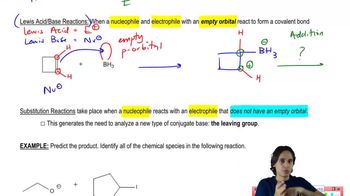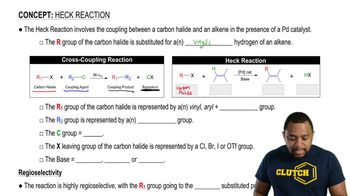1. Propose a mechanism for the acid-catalyzed reaction of salicylic acid with acetic anhydride.
2. Explain why a single drop of sulfuric acid dramatically increases the reaction rate.
 Verified step by step guidance
Verified step by step guidance Verified video answer for a similar problem:
Verified video answer for a similar problem:



 9:32m
9:32mMaster NAS - The Three Rules with a bite sized video explanation from Johnny
Start learning